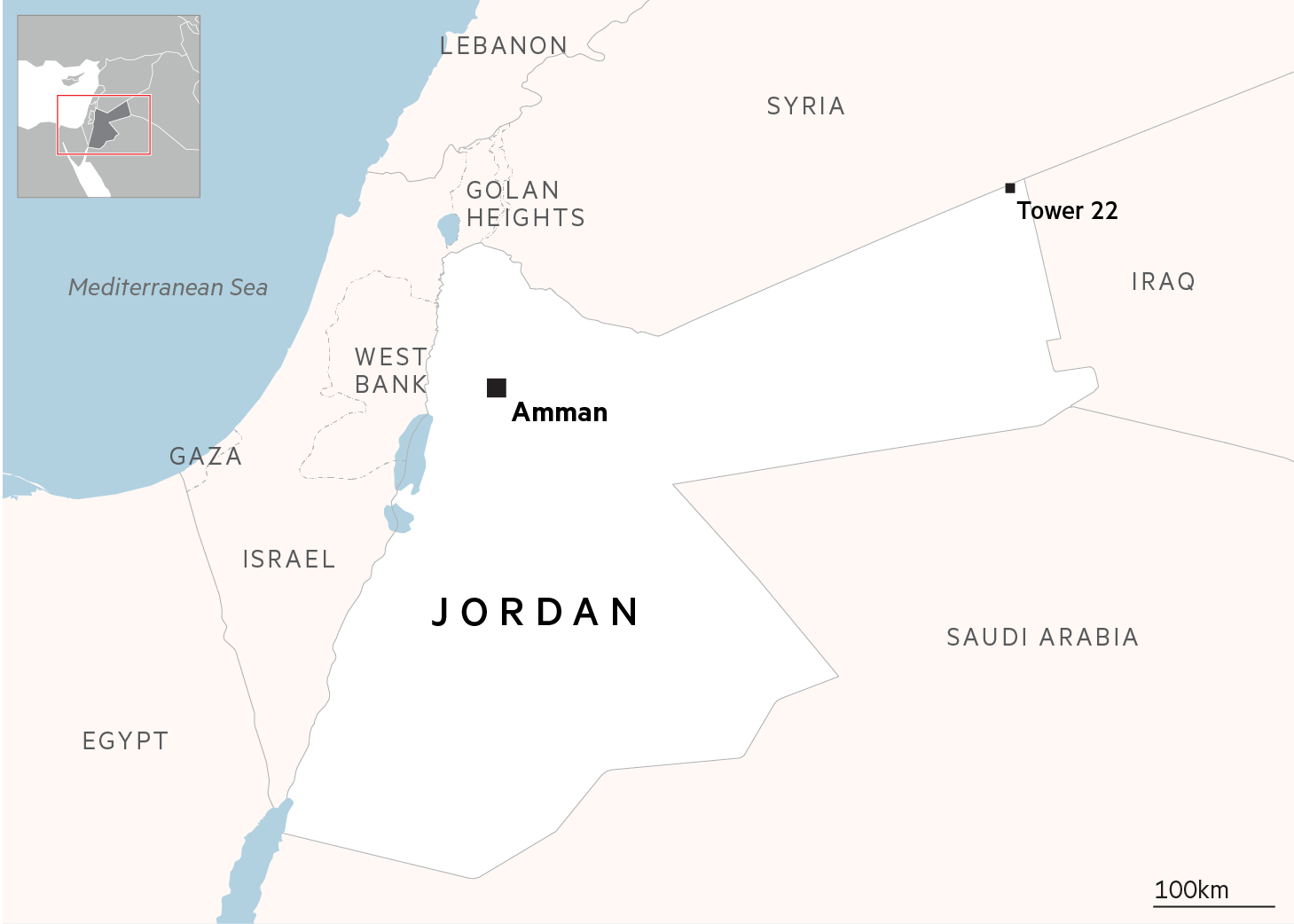Washington said it was “not looking for a war with Iran” on Monday, as Tehran distanced itself from an attack that killed three US soldiers.
A day after blaming “radical Iran-backed militant groups” for the drone strike on a military base in north-east Jordan, the White House said it was not seeking to escalate the conflict in the region.
“We are not looking for a war with Iran,” US National Security Council spokesman John Kirby told NBC’s Today Show. But he added: “We’ll keep looking at the options . . . We want these attacks to stop.”
Kirby’s comments came after Iran’s foreign ministry labelled any accusation that it was involved in the US troops’ deaths as a “baseless” conspiracy by those “interested in dragging the US into a new conflict in the region to intensify the crisis”.
Tehran’s mission to the UN depicted the strike as part of clashes “between the US army and resistance groups in the region, who reciprocally confront each other”, in comments quoted by IRNA, Iran’s official news agency.
The US has hit targets linked to Tehran-backed militias across the region following more than 160 attacks by such groups on US troops in Iraq, Syria and Jordan since October, as well as 30 strikes on international shipping in the Red Sea.
To date it has not struck Iran directly — although, in reference to the deaths of three American service members, Kirby said: “We’re now in different territory.”
Sunday’s deaths mark the first time US troops have been killed in an attack in the Middle East since the Israel-Hamas war began in Gaza in October.
Kirby said the US was “still working our way through” attributing responsibility for Sunday’s drone attack. But he added that Washington believed the group involved was supported by Kataib Hizbollah, a militant Iranian-backed Iraqi militia.
Lloyd Austin, US defence secretary, said he and US President Joe Biden would “take all necessary actions to defend the US and our troops”.
US forces in Syria and Iraq have come under repeated assault by a newly created group of Iran-backed militias known as the Islamic Resistance in Iraq, which says it is retaliating for Washington’s backing for Israel’s war against Hamas in Gaza.
The US has responded by conducting air strikes on facilities linked to the Iraqi militia groups.
Sunday’s attack, which US defence officials said also injured at least 34 service members, struck the Tower 22 outpost near Jordan’s border with Syria, which houses 350 US military personnel as part of the coalition against Isis.
The IRI said on Sunday it used armed drones to attack three military bases with US personnel in Syria, including one across the border from the Tower 22 outpost. It is not clear if this was the attack that killed the three US service members.
Top Republicans in Congress have called for direct strikes on Iran in response. “Hit Iran now. Hit them hard,” senator Lindsey Graham wrote on X, while senator John Cornyn wrote: “Target Tehran.”
In a posting on his Truth Social network, former president Donald Trump labelled the attack a “horrific and tragic consequence of Joe Biden’s weakness and surrender” but called for no specific action. “We are on the brink of World War 3,” he added.
“Iran is probably calculating that the US is reticent to respond and engage in a region-wide conflict,” said Jonathan Panikoff, a former senior intelligence official now at the Atlantic Council.
“The facts on the ground demonstrate that avoiding the regional conflict is becoming harder regardless of US desires, and the US is now a prime target. That has to prompt the Biden administration to at least reconsider how it views the nature of the current conflict.”

Oil prices briefly climbed more than 1 per cent in early trading on Monday, before falling back.
Brent crude, the international benchmark, was 0.7 per cent lower at $82.94 a barrel later in the day. The equivalent US benchmark West Texas Intermediate fell 0.9 per cent to trade at $77.29 a barrel.
Iran’s foreign ministry spokesperson Nasser Kanaani accused the US of “comprehensive support for the genocide of Palestinians” in Gaza as well as the bombings and attacks against anti-Israel groups in Iraq, Syria and Yemen that were “exacerbating this cycle of instability”.
Iran demanded “an immediate ceasefire” that “can pave the way for the return of calm to the region”, he added.
On Monday, Syria said Israel had launched an air attack targeting areas south of Damascus, originating from the Golan Heights. Syria’s defence ministry said civilians were killed and injured, without specifying numbers, in a statement published by state media outlet SANA.
An initial report by SANA said the dead included “Iranian advisers”, but the reference was later removed. Tehran’s ambassador to Syria, Hossein Akbari, dismissed reports of Iranian casualties, saying on X: “In today’s attack . . . no advisory centre of the Islamic Republic of Iran was targeted. Additionally, among the citizens or Iranian advisers, no one has been martyred.”
This month, the US military also killed a high-ranking commander of Harakat al-Nujaba, an Iran-backed militia in Iraq. Washington described the action as “self-defence” after the faction conducted attacks on US personnel. Experts believe Harakat al-Nujaba is one of the IRI’s most influential factions. The US has about 2,500 troops in Iraq and about 900 in Syria, where they are deployed to help prevent a resurgence of Isis.
The US and UK have been co-ordinating joint strikes on Houthi targets in Yemen in response to the Iran-backed rebel group’s attacks on vessels sailing through the Red Sea, a critical shipping lane for global trade.
Iranian-backed Houthi rebels have said their attacks on shipping lanes were in response to Israel’s bombardment of the Gaza Strip since it launched its war against Hamas in October.
Additional reporting by William Sandlund in Hong Kong


